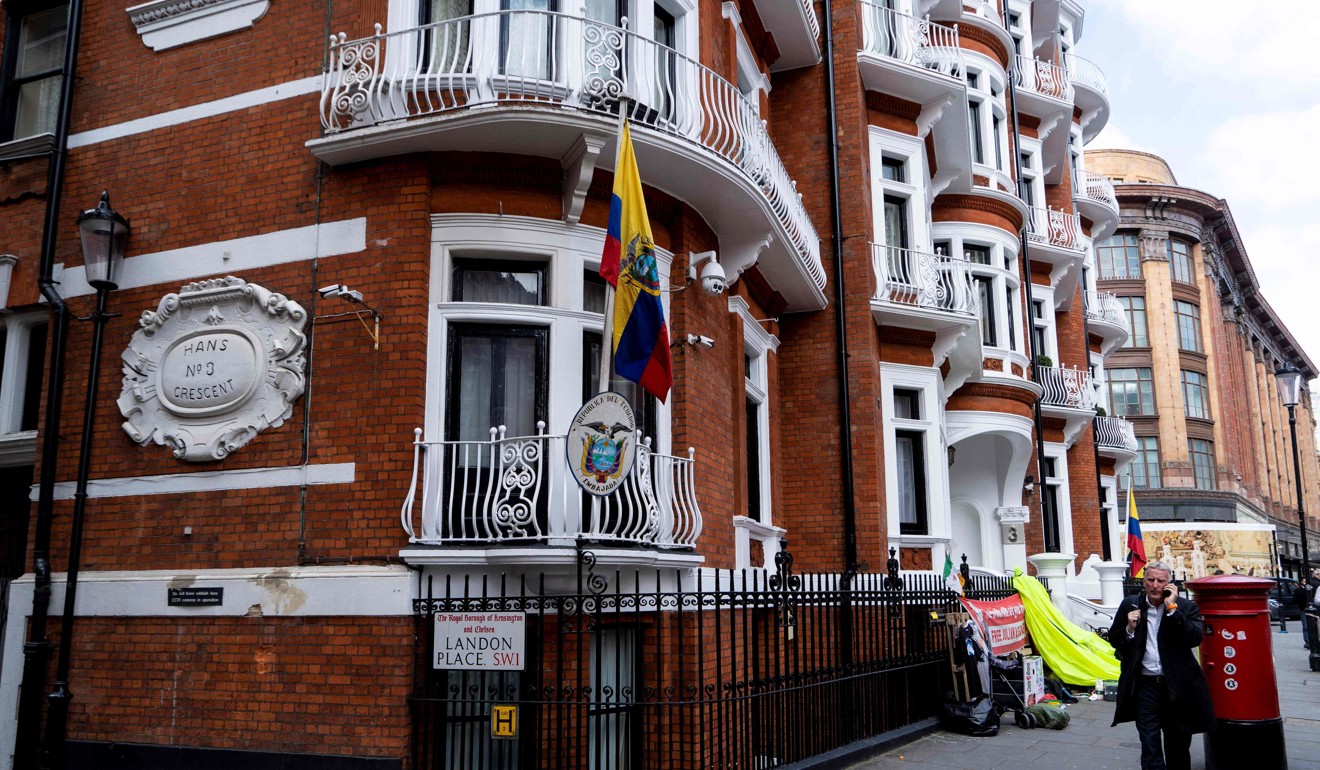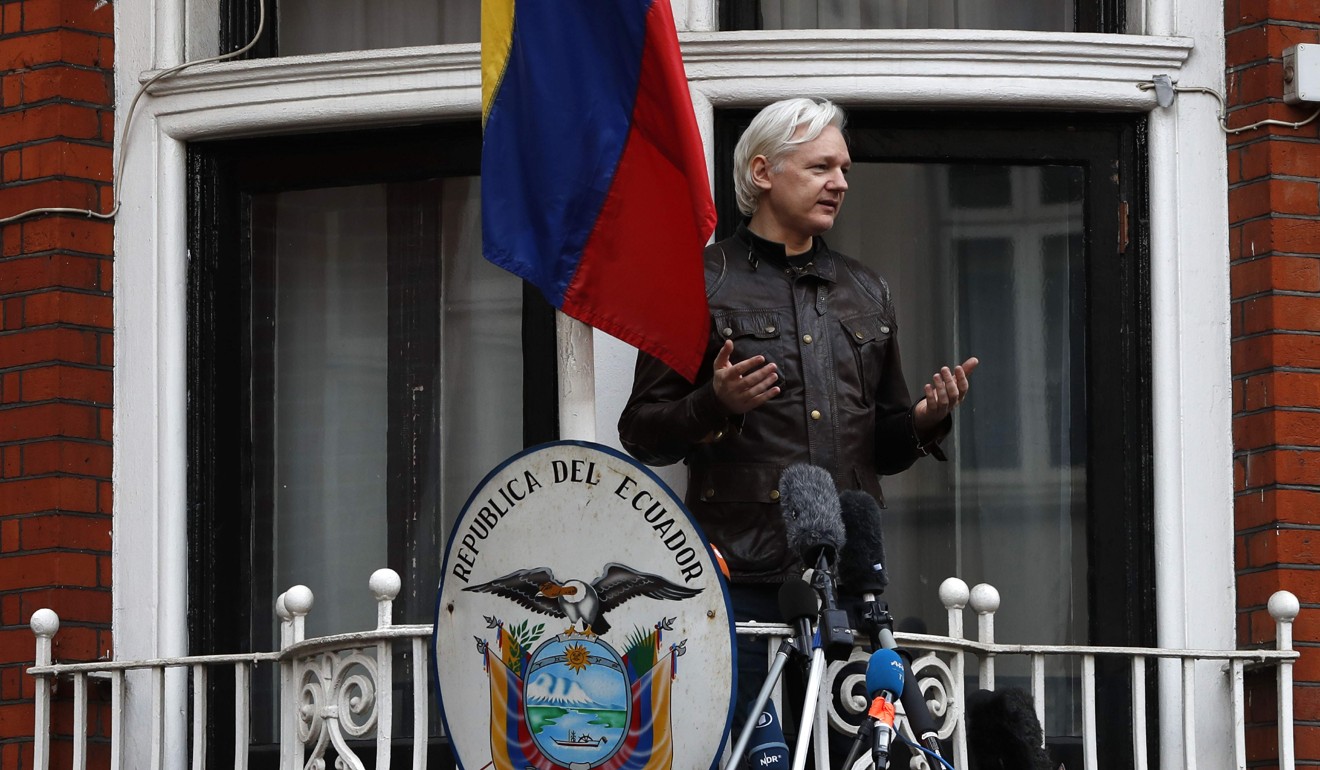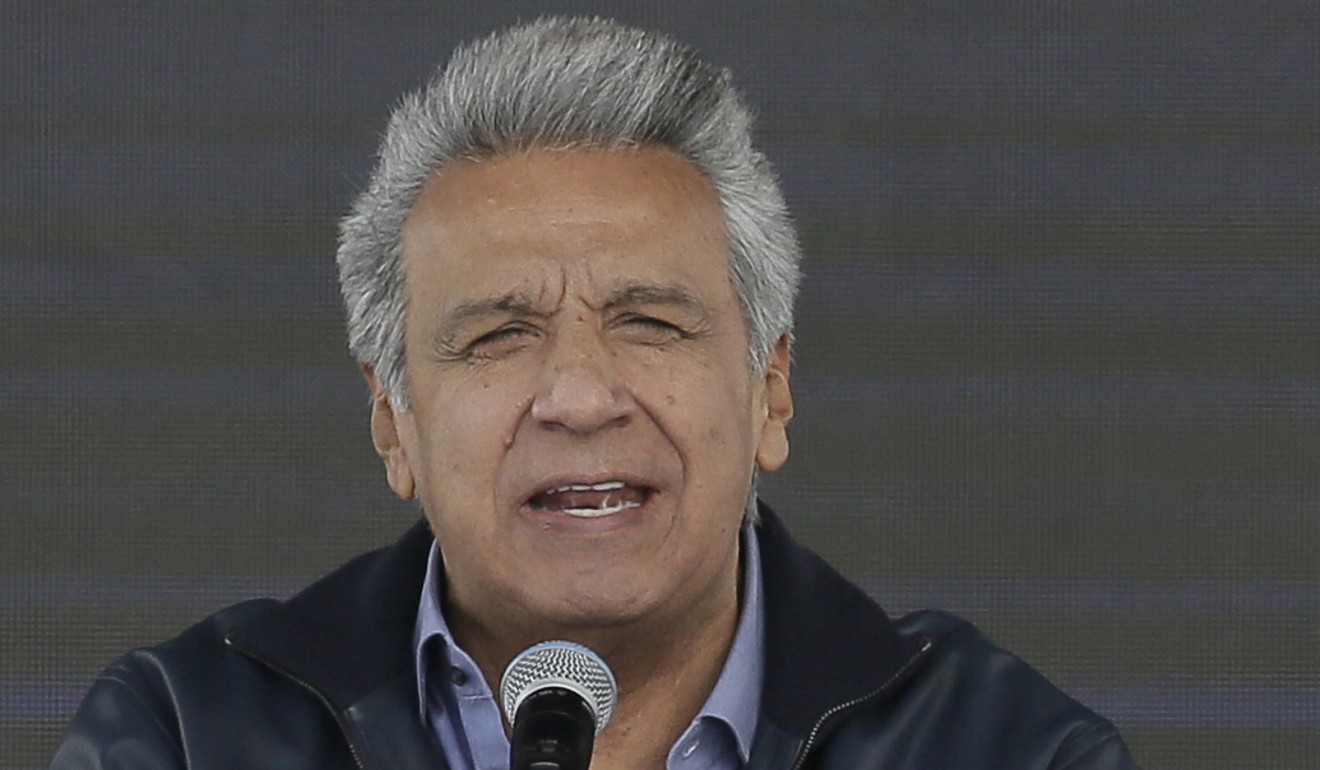
Julian Assange’s seven-year stay in Ecuador’s embassy marked by erratic behaviour that included skateboarding at night
- Ecuador spent almost US$1 million a year to protect ‘spoiled brat’

Did Western media and government hypocrisy bring about Julian Assange’s arrest, or was it his bad manners?
The dramatic end to Assange’s asylum has sparked curiosity about his seven-year stay inside Ecuador’s embassy in London that was marked by his late-night skateboarding, the physical harassment of caretakers and even smearing his own faeces on the walls of the diplomatic mission.
It would’ve tested the patience of any host. But for tiny Ecuador, which prides itself on its hospitality and spent almost US$1 million a year protecting Assange, it was also seen as a national insult.
“We’ve ended the asylum of this spoiled brat,” a flustered President Lenin Moreno said on Thursday in a fiery speech explaining his decision to withdraw protection of Assange. “From now on we’ll be more careful in giving asylum to people who are really worth it, and not miserable hackers whose only goal is to destabilise governments.”

Others, including former Ecuadorean president Rafael Correa, who granted Assange asylum in 2012, said while Assange violated the terms of his asylum “that’s no excuse for throwing him to the lions”.
Ecuador emerged as a safe haven for the WikiLeaks founder in 2012 as his legal options to evade extradition to Sweden over sex crime accusations dried up in the UK. On a June day, he moved into the country’s embassy near Harrods department store for what most thought would be a short stay.
Instead, the cramped quarters, where a small office was converted into a bedroom, became a permanent address that some likened to a de facto jail.
As the asylum dragged on, his relations with his hosts soured and his behaviour became more erratic. Embassy staff complained about him skateboarding at night, playing loud music and walking around in his underwear with no apparent concern for others in the tiny embassy.

One senior Ecuadorean official described his room as a “sovereign territory within a sovereign territory” that none of the staff could enter. But the stench from weeks without a shower and a dental problem was a constant nuisance, according to the official who spoke on condition of anonymity.
Then there was the issue of Assange’s poop, which authorities said he spread across embassy walls at least once to show how little he thought of his hosts.
“When you’re given shelter, cared for and provided food, you don’t denounce the owner of the house,” Moreno said.
Within months of taking office in 2017, Moreno’s government scolded Assange for voicing his support for Catalan secessionists from the Ecuadorean embassy.
Relations grew so prickly that last year Ecuador increased restrictions on his internet access and required him to clean up after his cat. The rules said if the feline wasn’t properly fed and cleaned up after, it would be sent to the pound.

Foreign Minister Jose Valencia said a recording a made few months ago captured Assange threatening Ambassador Jaime Merchan with pressing a panic button he said would bring devastating consequences for the embassy if he was arrested. Although it wasn’t clear what he meant, authorities shared their concerns with British authorities, who were careful when arresting Assange to prevent him returning to his room to execute any possible emergency plans.
The final straw for Moreno was WikiLeaks’ decision to spread information about a purported offshore account controlled by the president’s brother.
Correa, however, criticised a “double standard” by Western media and governments who he said have been quick to condemn Assange for publishing sensitive information about US national security interests.
“Although Julian Assange denounced war crimes, he’s only the person supplying the information. It’s The New York Times, The Guardian and El País publishing it. Why aren’t those journalists and media owners thrown in jail?” he said.
If Assange had been Chinese dissident exposing Russian secrets instead of facing arrest and extradition “he’d be receiving awards right now in the UK and US”, he said.